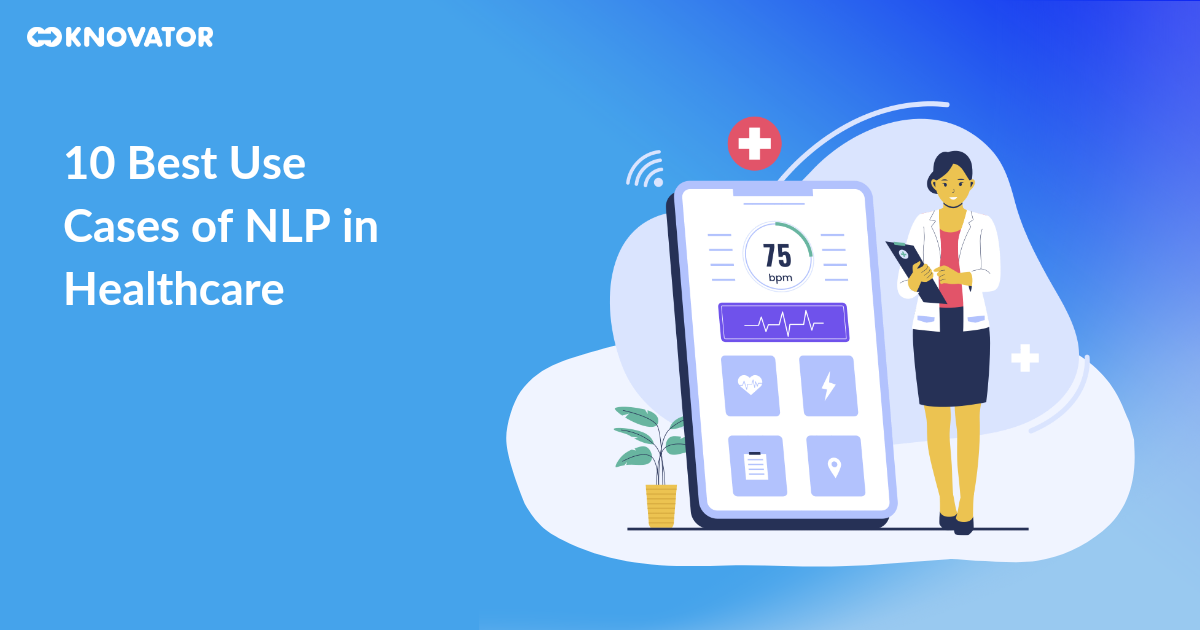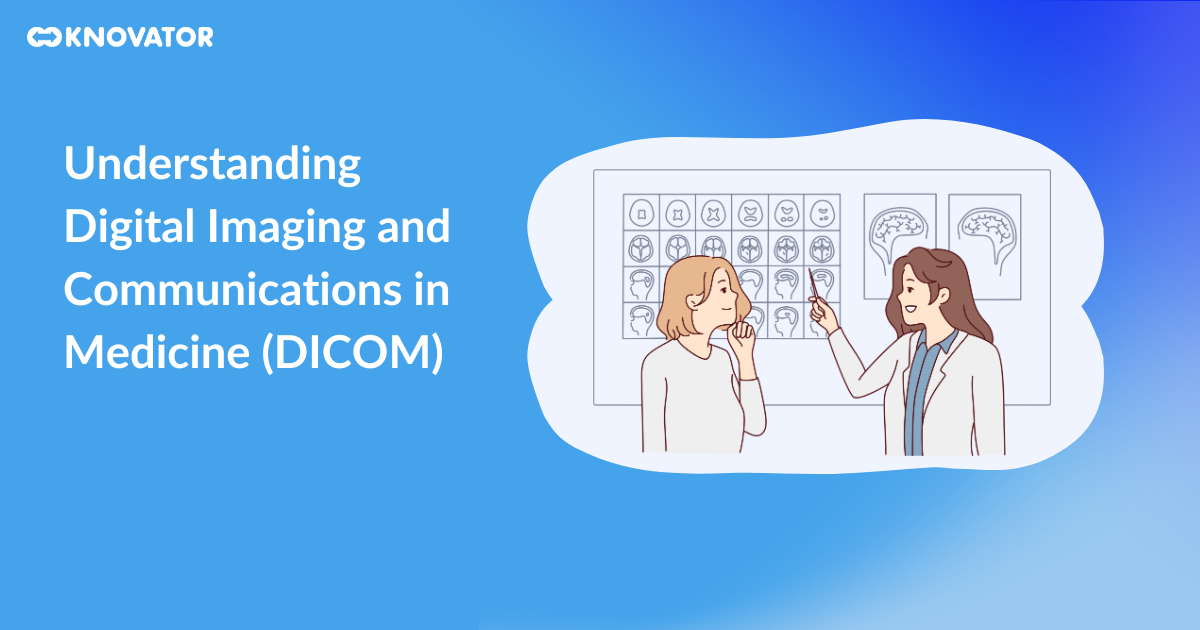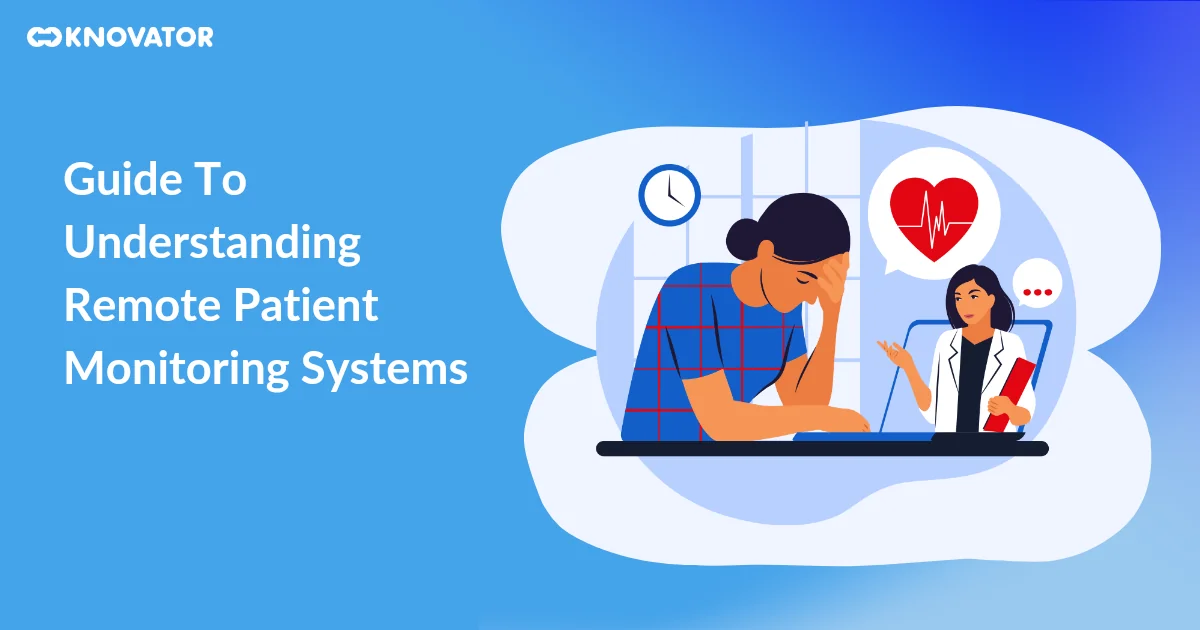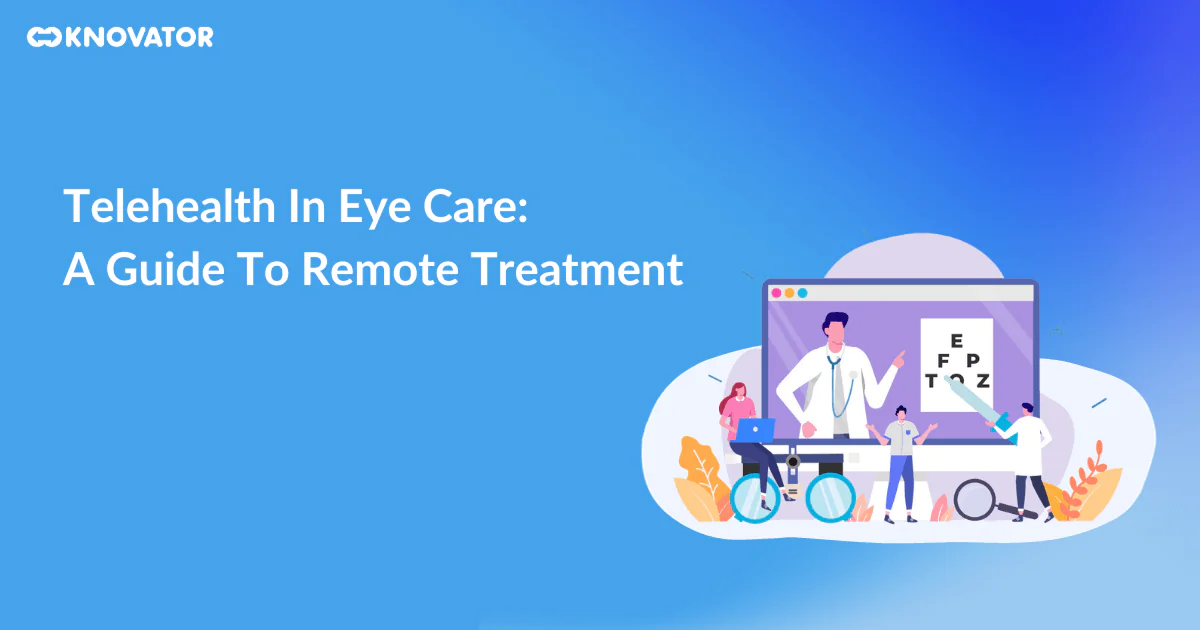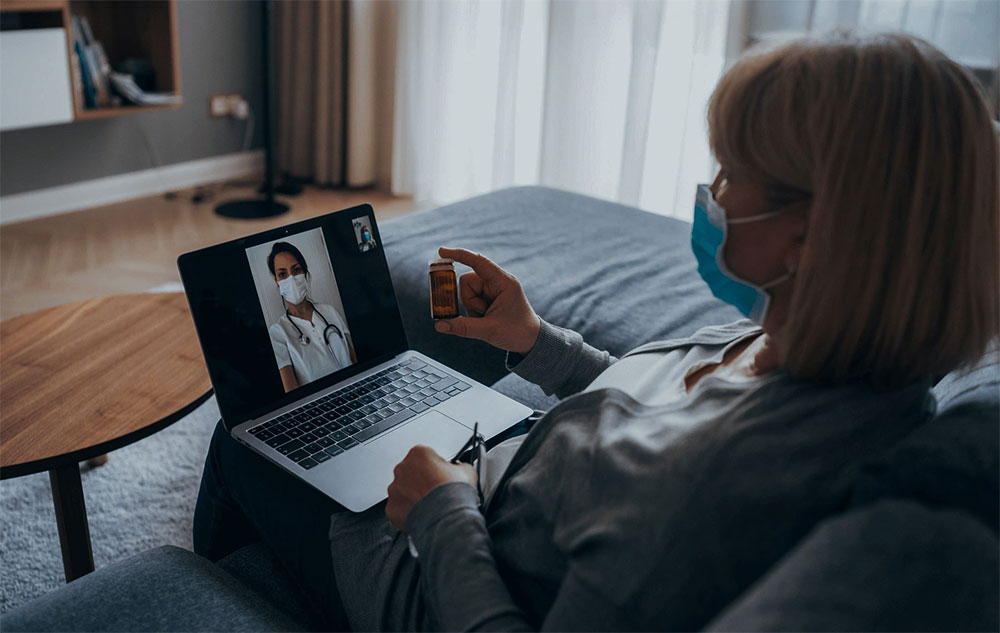In today’s world, technology is transforming healthcare in unique ways. One of the leading players is Natural Language Processing (NLP). From improving patient care to accelerating biomedical research, NLP is making significant strides in the healthcare industry. In fact, experts predict that by 2026, NLP in healthcare will grow to a whopping $4.3 billion market.
In this post, we’ll explore the 10 best use cases of NLP in healthcare, shedding light on how this technology revolutionizes the industry. Whether you’re a healthcare professional, a tech enthusiast, or someone curious about the intersection of these fields, there’s something here for you.
Let’s get started!
What is NLP & How Does It Work in Healthcare?
To understand the role of healthcare NLP, let’s first break down what NLP is. Natural Language Processing is a computer program’s ability to comprehend human language as spoken or written. It aims to make our interactions with machines more human-like. For instance, it could allow a machine to understand a physician’s notes and patient records or even convert spoken words into text. This technology is quite exciting, isn’t it?
In the healthcare industry, NLP acts as a highly effective assistant. It helps analyze vast amounts of data, identify trends, uncover valuable insights, and even predict outcomes. It’s not surprising that NLP is revolutionizing the medical field, leading to faster diagnoses, improved patient care, and more streamlined hospital management.
Best Use Cases Of NLP In Healthcare
After understanding the basics of NLP in healthcare, let’s move forward to some of the best use cases of this technology. These include:
1. Clinical Documentation
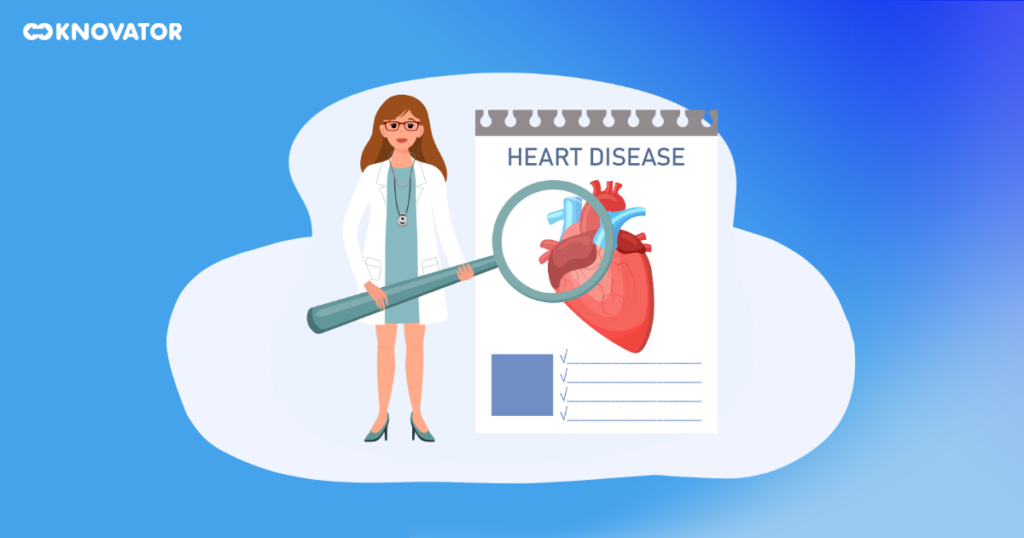 Natural language processing (NLP) in healthcare can automate clinical documentation, freeing clinicians’ time to focus on patient care. NLP-powered speech-to-text dictation and structured data entry tools can help clinicians quickly and accurately enter patient information into electronic health records (EHRs). This can help to improve the quality of clinical documentation and reduce the risk of errors.
Natural language processing (NLP) in healthcare can automate clinical documentation, freeing clinicians’ time to focus on patient care. NLP-powered speech-to-text dictation and structured data entry tools can help clinicians quickly and accurately enter patient information into electronic health records (EHRs). This can help to improve the quality of clinical documentation and reduce the risk of errors.
Further, NLP is capable of extracting valuable insights from clinical documentation. For example, NLP tools can recognize patients at risk for certain diseases or track treatment plans’ effectiveness. This information can be used to enhance patient care and outcomes.
NLP can also analyze public data sets and social media to identify Social Determinants of Health (SDOH). SDOH are factors such as income, education, and access to healthcare that can significantly impact health outcomes. By understanding SDOH, healthcare providers can better target interventions and improve the health of their patients.
2. Patient Care and Monitoring
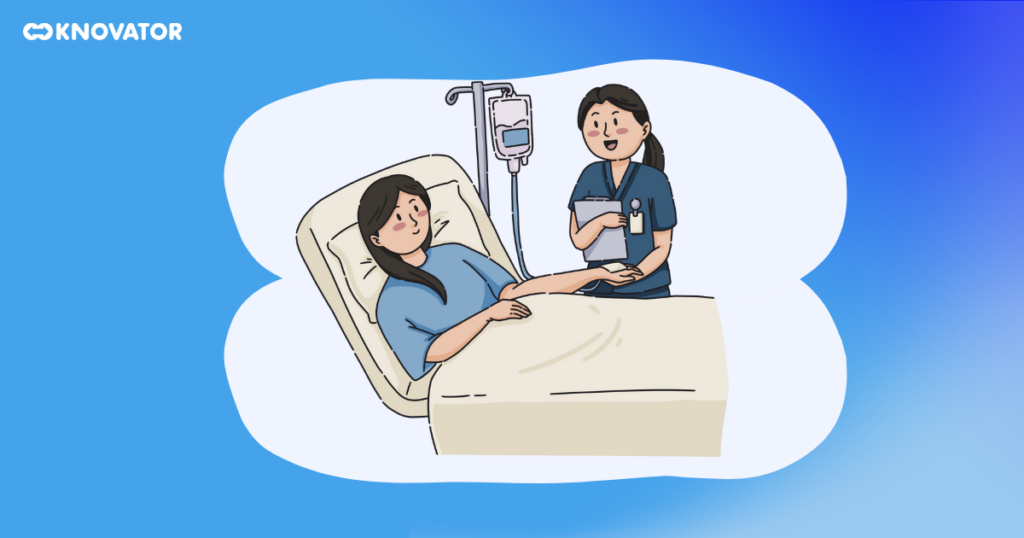 Another use case of natural language processing in healthcare is patient care and monitoring. Natural Language Processing (NLP) can be utilized to gather information from various data sources such as Electronic Health Records (EHRs) and Patient-Reported Outcomes (PROs).
Another use case of natural language processing in healthcare is patient care and monitoring. Natural Language Processing (NLP) can be utilized to gather information from various data sources such as Electronic Health Records (EHRs) and Patient-Reported Outcomes (PROs).
This information can help track the patient’s progress, identify potential issues, and provide personalized care.
NLP has various applications, such as:
- Identify patients who have higher chances of getting readmitted to the hospital.
- Monitor patients’ medication adherence.
- Track patients’ symptoms and side effects.
- Generate personalized care plans.
3. Speech Recognition
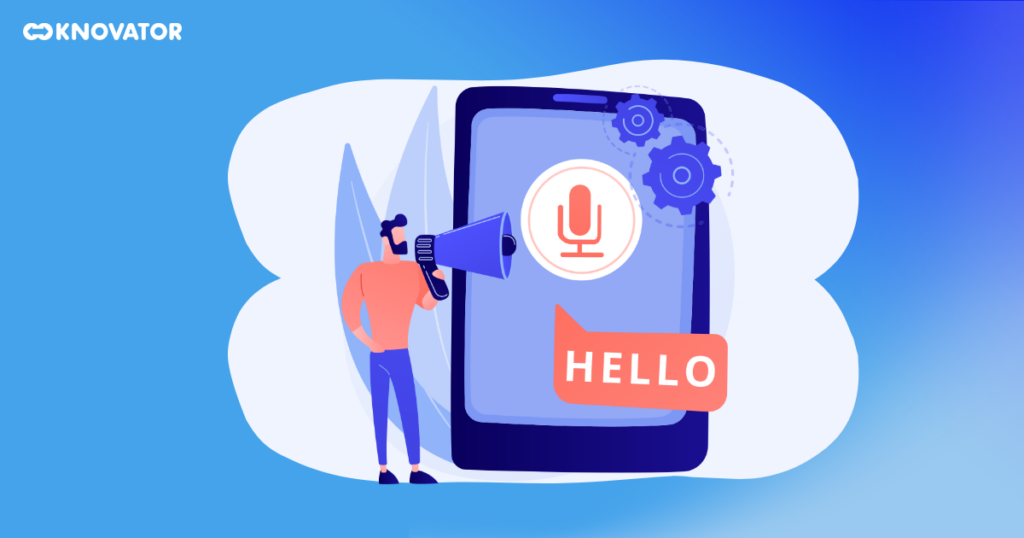 Natural language processing (NLP) has matured its use case in speech recognition over the years, allowing clinicians to transcribe notes for useful electronic health record (EHR) data entry.
Natural language processing (NLP) has matured its use case in speech recognition over the years, allowing clinicians to transcribe notes for useful electronic health record (EHR) data entry.
With front-end speech recognition, physicians do not need to dictate notes, which can help them spend more time with patients. Back-end technology then detects and corrects any mistakes in the transcription before the notes are passed on for human proofing.
The market for speech recognition technology is almost saturated, but some startups are disrupting the space with deep learning algorithms. These algorithms can mine large datasets of medical speech recordings, uncovering new insights that can improve patient care.
Here are some of the benefits of using NLP for healthcare:
- Improved patient care
Speech recognition ensures that patient notes are accurate and complete, which can lead to better care.
- Increased productivity
Speech recognition can free up physicians to spend more time with patients, improving patient satisfaction.
- Reduced costs
Speech recognition helps reduce healthcare costs by reducing the time and resources spent on documentation.
4. Computer-Assisted Coding (CAC)
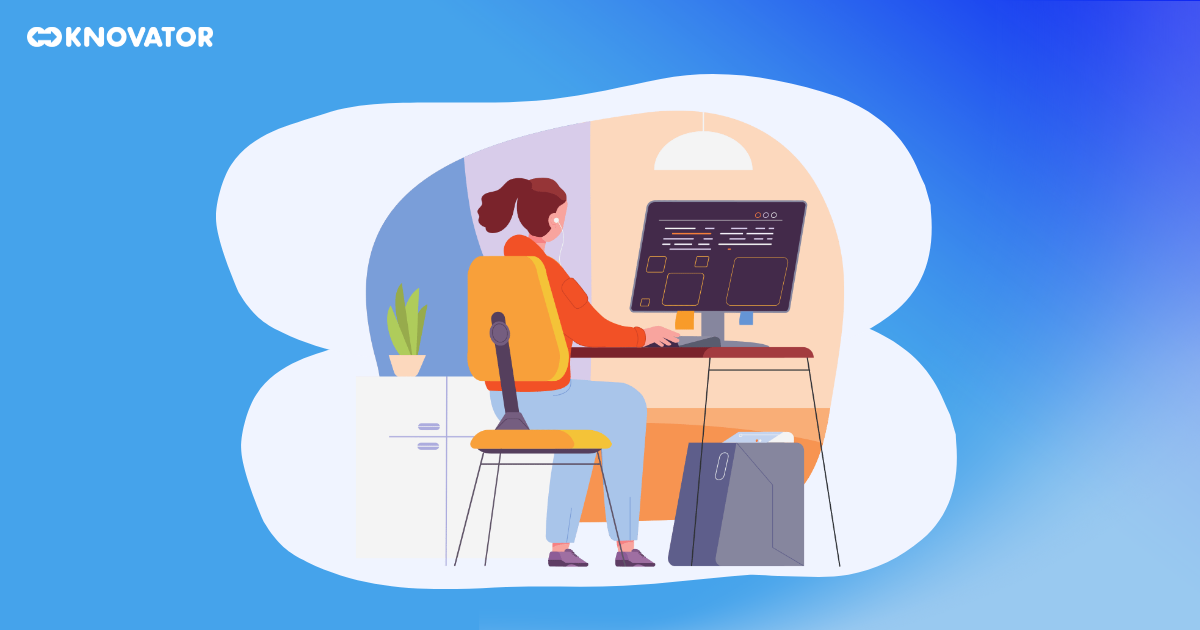 Computer-Assisted Coding is a medical natural language processing technology that uses algorithms to automate the process of assigning appropriate medical codes to medical records. This helps improve the pace and accuracy of coding and the likelihood of claims being reimbursed.
Computer-Assisted Coding is a medical natural language processing technology that uses algorithms to automate the process of assigning appropriate medical codes to medical records. This helps improve the pace and accuracy of coding and the likelihood of claims being reimbursed.
CAC extracts data from the medical record, such as the patient’s diagnosis, procedures, and treatments. This data is then used to generate a list of possible codes that could be used to bill for the services provided. The coder can then review the list of codes and select the most appropriate one.
CAC is one of the most popular uses of NLP in healthcare, but its adoption rate is still relatively low, i.e., 30%. This is because CAC can be difficult to implement and maintain, and it can also be expensive.
5. Adverse Drug Reaction Detection
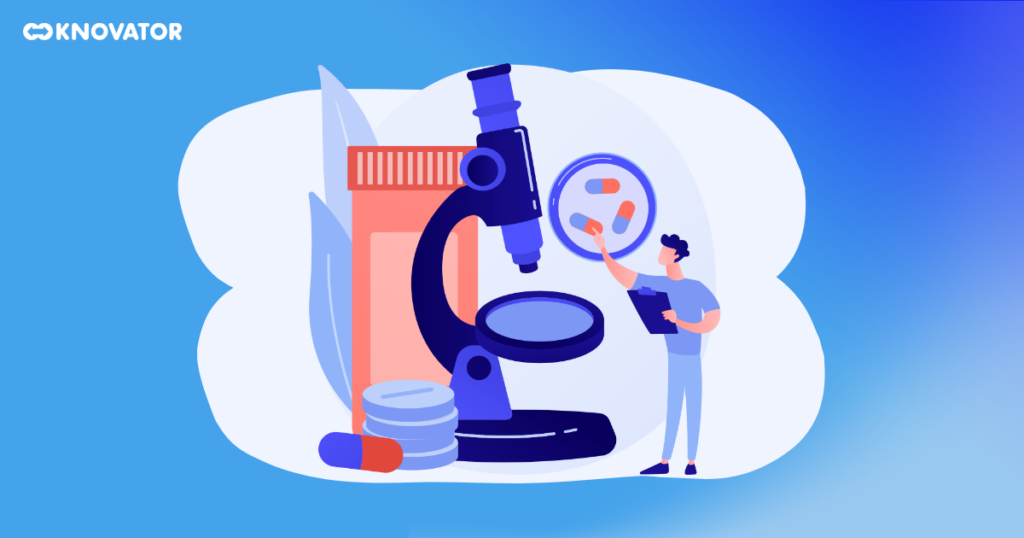 In healthcare, NLP can automate various tasks, including detecting adverse drug reactions (ADRs).
In healthcare, NLP can automate various tasks, including detecting adverse drug reactions (ADRs).
ADRs are unintended and harmful effects that can occur when a patient takes medication. They may range from mild to severe, and in some cases, they can be fatal. Further, ADRs can be difficult to detect, as they often present with symptoms similar to other medical conditions.
Thus, NLP can help to identify ADRs by analyzing patient records, social media posts, and other data sources. NLP can identify potential ADRs that may have gone unnoticed by looking for patterns in the language used to describe symptoms.
This early detection of ADRs is crucial, allowing healthcare providers to take action promptly and ensure patient safety.
6. Precision Medicine
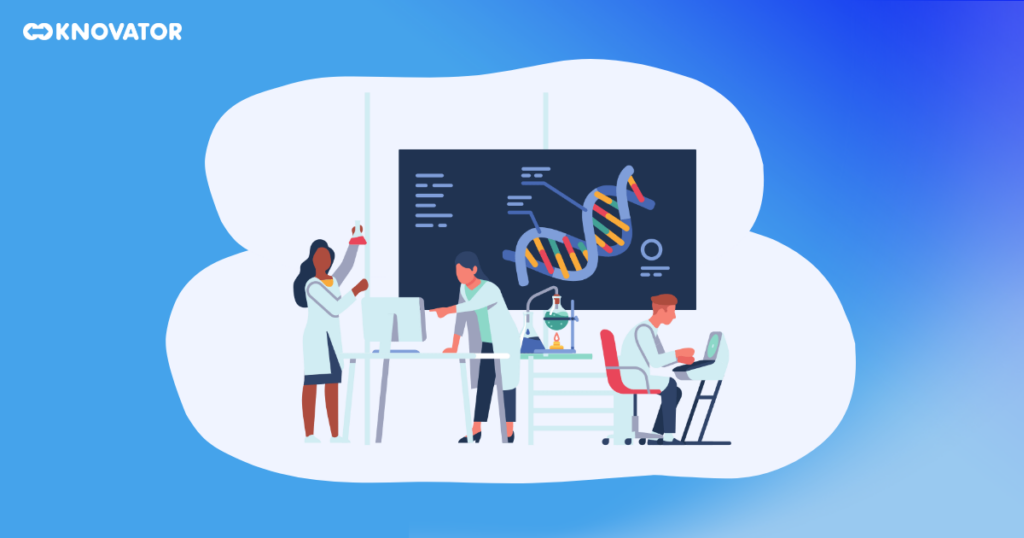 Natural language processing (NLP) is a robust tool in precision medicine. This approach tailors treatment plans to individual patients on the basis of their genetic makeup, lifestyle, and environment. Healthcare NLP can analyze large amounts of genetic information and other health data to provide personalized treatment plans.
Natural language processing (NLP) is a robust tool in precision medicine. This approach tailors treatment plans to individual patients on the basis of their genetic makeup, lifestyle, and environment. Healthcare NLP can analyze large amounts of genetic information and other health data to provide personalized treatment plans.
Doctors can benefit from the use of this technology. It can provide insights into a patient’s likelihood of developing certain illnesses and help them anticipate their reaction to a particular treatment. This individualized approach leads to better patient outcomes and is a significant step forward in modern healthcare.
Here are some specific examples of how NLP is being used in precision medicine:
- To identify patients who are at risk for certain diseases. NLP can analyze large medical record datasets to identify patients at risk for certain diseases.
- To predict how patients respond to treatment. NLP can be used to study patient data to predict how they will respond to the treatment.
- To identify the most effective therapies. NLP can examine clinical trial data to identify the most effective therapies for different diseases.
7. Biomedical Research
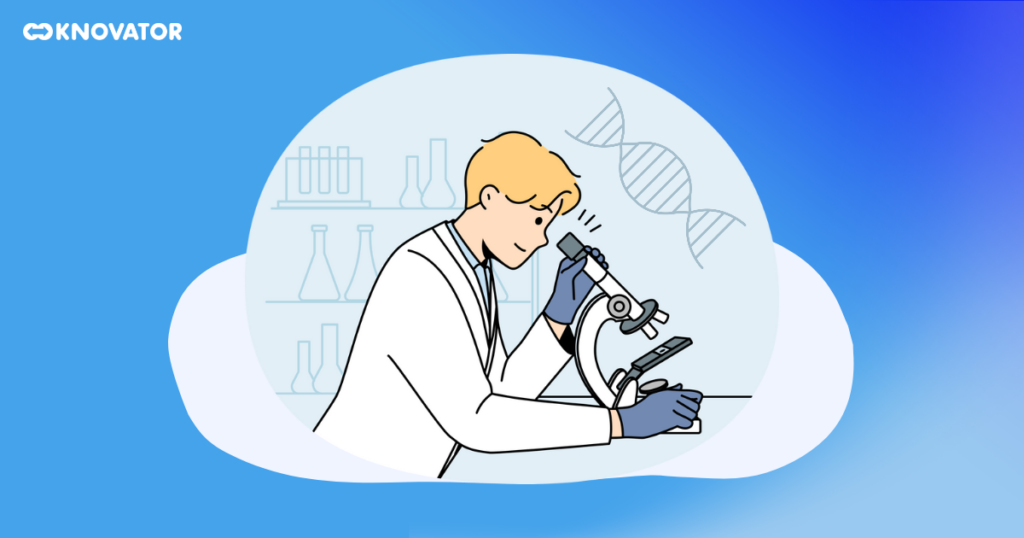 Biomedical research is one of the most important use cases of natural language processing (NLP) in healthcare. NLP can extract information from scientific literature and clinical data, which can help researchers identify new drug targets, develop new treatments, and improve the understanding of diseases.
Biomedical research is one of the most important use cases of natural language processing (NLP) in healthcare. NLP can extract information from scientific literature and clinical data, which can help researchers identify new drug targets, develop new treatments, and improve the understanding of diseases.
For example, NLP can assist in:
- Identifying possible drug interactions
Researchers can utilize NLP to analyze various drugs’ side effects and interactions, thereby identifying the possible risks and benefits of new drug combinations.
- Discovering new genes
NLP can assist researchers in identifying new genes related to various diseases by examining patients’ genetic sequences.
- Developing personalized medicine
By studying patients’ medical records, NLP can help researchers identify the factors that are most likely to influence a patient’s response to a particular treatment.
8. Clinical Trial Matching
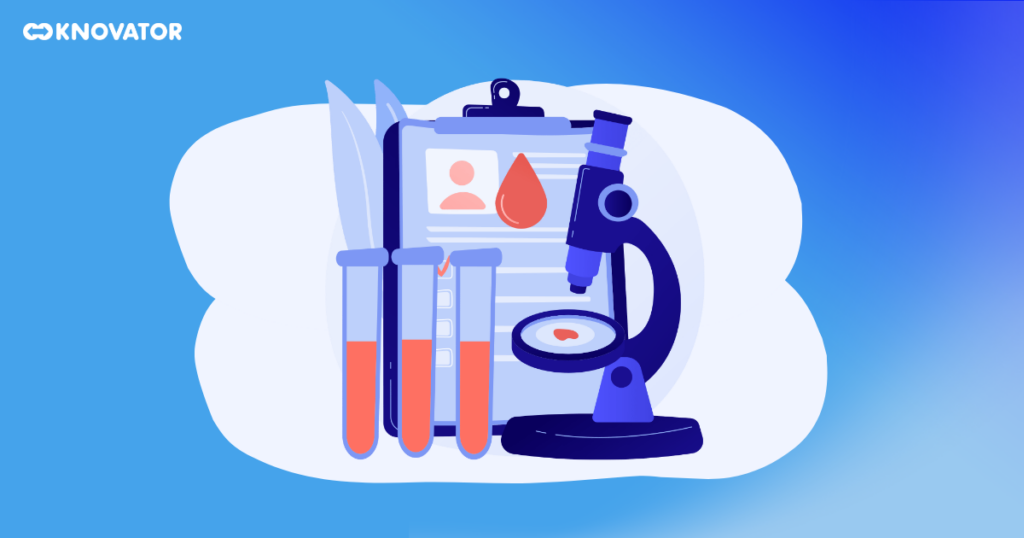 Clinical trial matching is one of the most promising use cases of NLP in healthcare. This is the process of identifying eligible patients to participate in clinical trials.
Clinical trial matching is one of the most promising use cases of NLP in healthcare. This is the process of identifying eligible patients to participate in clinical trials.
Traditionally, clinical trial matching has been a manual process that is time-consuming and labor-intensive. However, NLP can automate this process and make it more efficient. NLP algorithms can extract relevant information from patient records, such as their medical history, demographics, and current medications. This information can then be used to match patients to clinical trials that fit their needs well.
The use of NLP in clinical trial matching helps enhance the efficiency and effectiveness of clinical research. It can help increase the number of patients enrolled in clinical trials, which can lead to the development of new and improved treatments for diseases.
9. AI Chatbots and Virtual Scribes
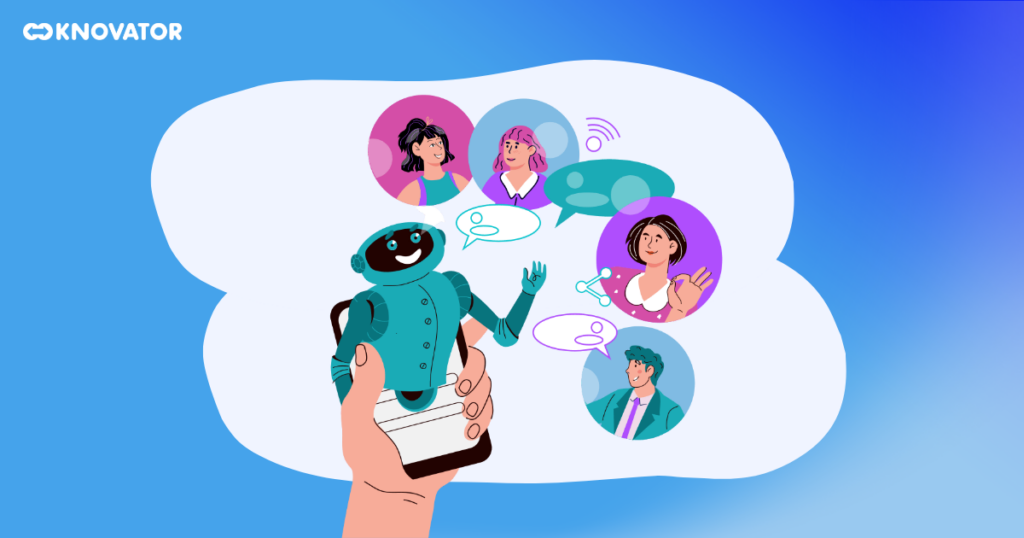 AI Chatbots and Virtual Scribes are transformative applications of NLP and healthcare. They are designed to ease administrative burdens and enhance patient care.
AI Chatbots and Virtual Scribes are transformative applications of NLP and healthcare. They are designed to ease administrative burdens and enhance patient care.
Chatbots like BRIGHT.MD’s Smart Exam uses natural language processing (NLP) to converse with patients and collect their health data. The chatbot then uses this data to offer diagnostic suggestions based on evidence-based guidelines. This helps to streamline the triage process by directing patients to the most appropriate care provider.
Virtual scribes are a promising new technology that has the potential to revolutionize healthcare. These tools use speech recognition to automate clinical documentation, saving clinicians time and reducing errors. This could lead to better patient care and overall healthcare efficiency.
Tech giants like Google and Microsoft are partnering to develop virtual scribes, and the future of this technology looks bright. As these tools continue to develop, they could become even more powerful and efficient. This could majorly impact the healthcare industry, making it more efficient and patient-centered.
10. Computational Phenotyping
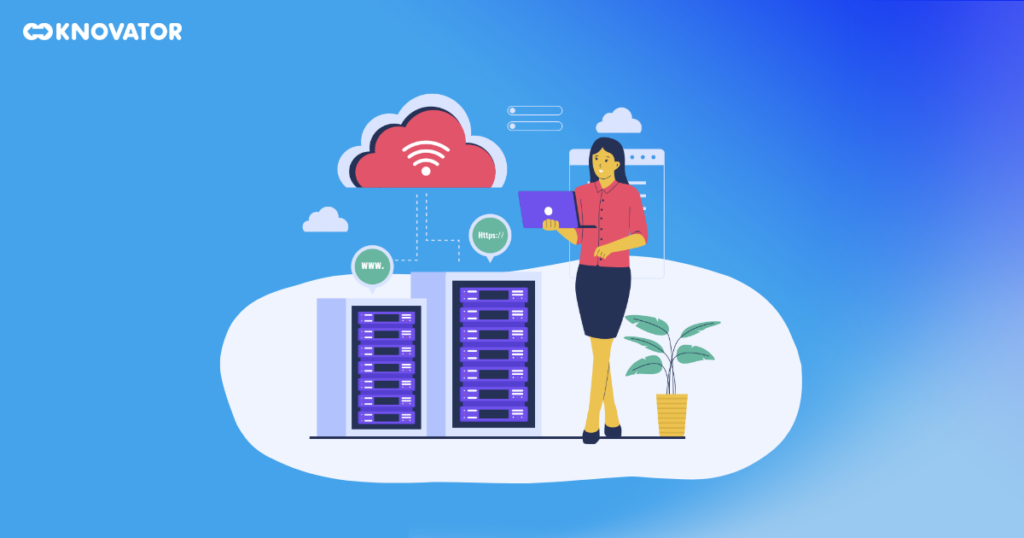 Computational phenotyping is a process of using NLP in healthcare to extract meaningful medical concepts from electronic health records (EHRs). This can be used to identify patients with certain diseases or conditions, to predict the risk of disease, or to track the progression of a disease.
Computational phenotyping is a process of using NLP in healthcare to extract meaningful medical concepts from electronic health records (EHRs). This can be used to identify patients with certain diseases or conditions, to predict the risk of disease, or to track the progression of a disease.
NLP in healthcare has many potential applications for computational phenotyping, including:
- Diagnosis categorization
NLP can be used to categorize patients’ diagnoses into different disease groups. This can assist doctors in making better treatment decisions.
- Novel phenotype discovery
NLP can be used to identify new phenotypes, or clusters of medical concepts, that are associated with certain diseases. This can help researchers to understand the causes and progression of diseases better.
- Clinical trial screening
NLP can be used to screen patients for clinical trials. This can ensure that only patients who meet the eligibility criteria are included in the trials.
- Pharmacogenomics
NLP can help identify patients who are likely to respond to certain drugs. This can help doctors to make better decisions for prescribing medication.
Unlocking Healthier Futures: NLP in Healthcare
And there you have it! Ten powerful ways NLP in healthcare is reshaping our health landscape. From improving clinical documentation to personalizing patient care, NLP is the invisible force driving a health revolution. It’s breaking down the barriers of traditional healthcare, making it more efficient, personalized, and proactive.
So, whether you’re a healthcare provider, a tech enthusiast, or simply someone who cares about staying healthy, it’s time to embrace the change. After all, NLP in healthcare isn’t just the future—it’s the here and now. And it’s making healthcare smarter, one byte at a time.

